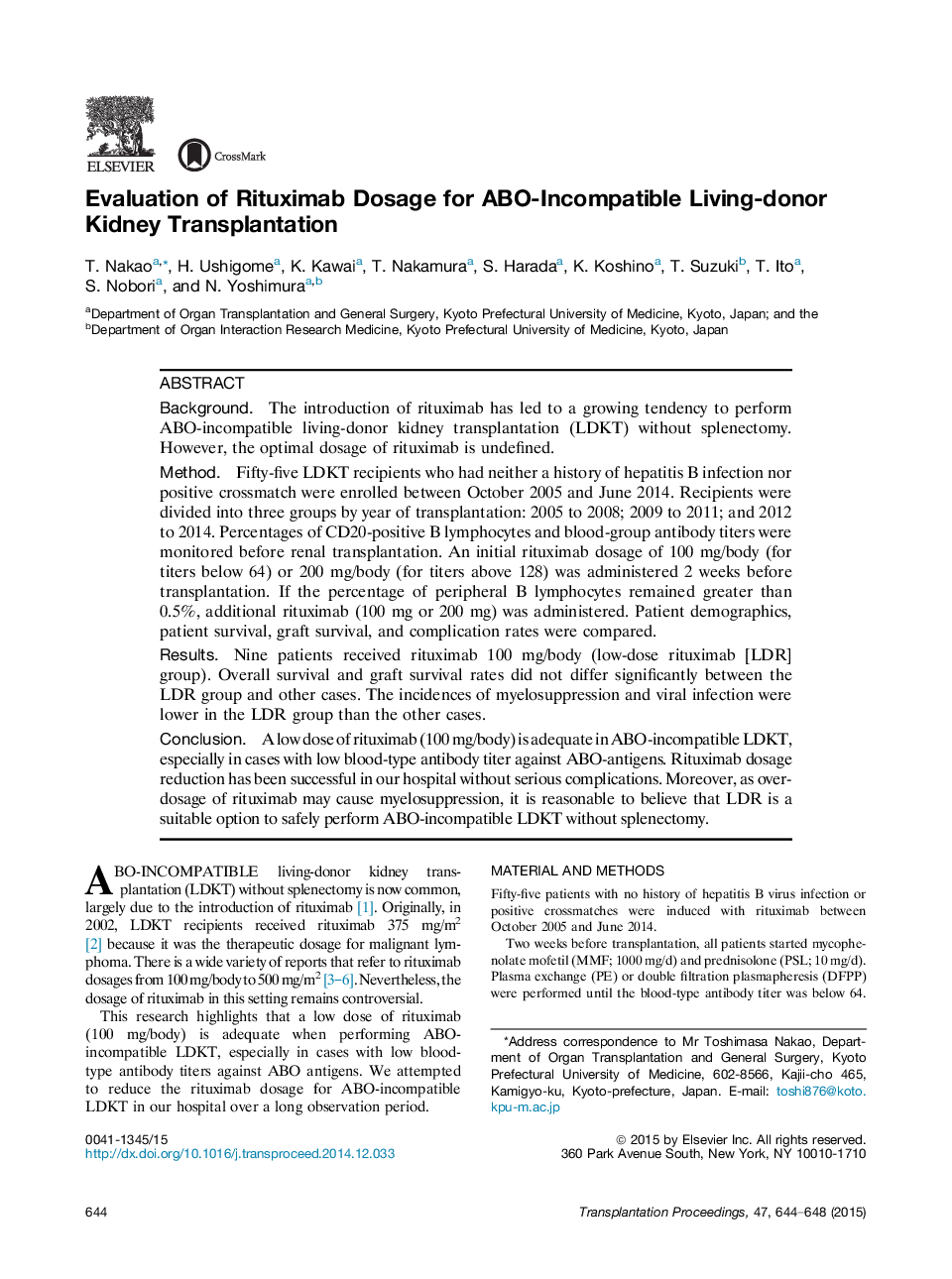| Article ID | Journal | Published Year | Pages | File Type |
|---|---|---|---|---|
| 6247811 | Transplantation Proceedings | 2015 | 5 Pages |
â¢We have attempted to reduce the rituximab dose for ABO-incompatible living-donor kidney transplantations in our hospital. Results indicate that rituximab dose reduction has been successful.â¢A low dose of rituximab (100 mg/body) is adequate when performing ABO-incompatible living-donor kidney transplantation, especially in cases of low ABO-antibody titers against ABO antigens.â¢Fewer cases of myelosuppression occurred in the low dose rituximab group than the comparator group.
BackgroundThe introduction of rituximab has led to a growing tendency to perform ABO-incompatible living-donor kidney transplantation (LDKT) without splenectomy. However, the optimal dosage of rituximab is undefined.MethodFifty-five LDKT recipients who had neither a history of hepatitis B infection nor positive crossmatch were enrolled between October 2005 and June 2014. Recipients were divided into three groups by year of transplantation: 2005 to 2008; 2009 to 2011; and 2012 to 2014. Percentages of CD20-positive B lymphocytes and blood-group antibody titers were monitored before renal transplantation. An initial rituximab dosage of 100 mg/body (for titers below 64) or 200 mg/body (for titers above 128) was administered 2 weeks before transplantation. If the percentage of peripheral B lymphocytes remained greater than 0.5%, additional rituximab (100Â mg or 200Â mg) was administered. Patient demographics, patient survival, graft survival, and complication rates were compared.ResultsNine patients received rituximab 100 mg/body (low-dose rituximab [LDR] group). Overall survival and graft survival rates did not differ significantly between the LDR group and other cases. The incidences of myelosuppression and viral infection were lower in the LDR group than the other cases.ConclusionA low dose of rituximab (100 mg/body) is adequate in ABO-incompatible LDKT, especially in cases with low blood-type antibody titer against ABO-antigens. Rituximab dosage reduction has been successful in our hospital without serious complications. Moreover, as over-dosage of rituximab may cause myelosuppression, it is reasonable to believe that LDR is a suitable option to safely perform ABO-incompatible LDKT without splenectomy.
